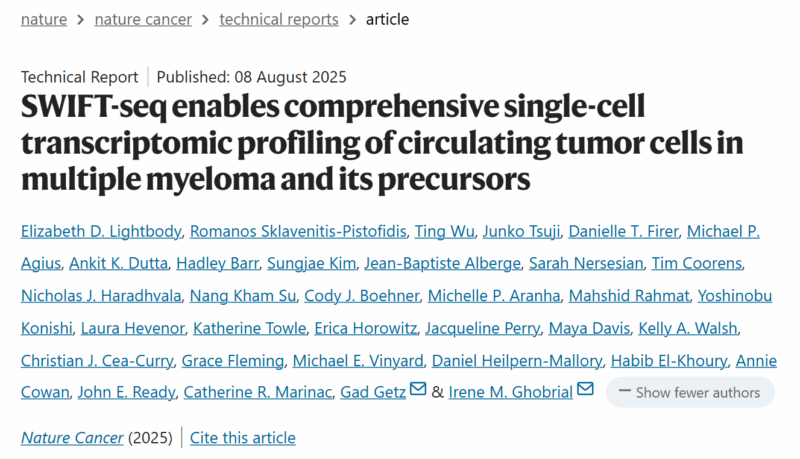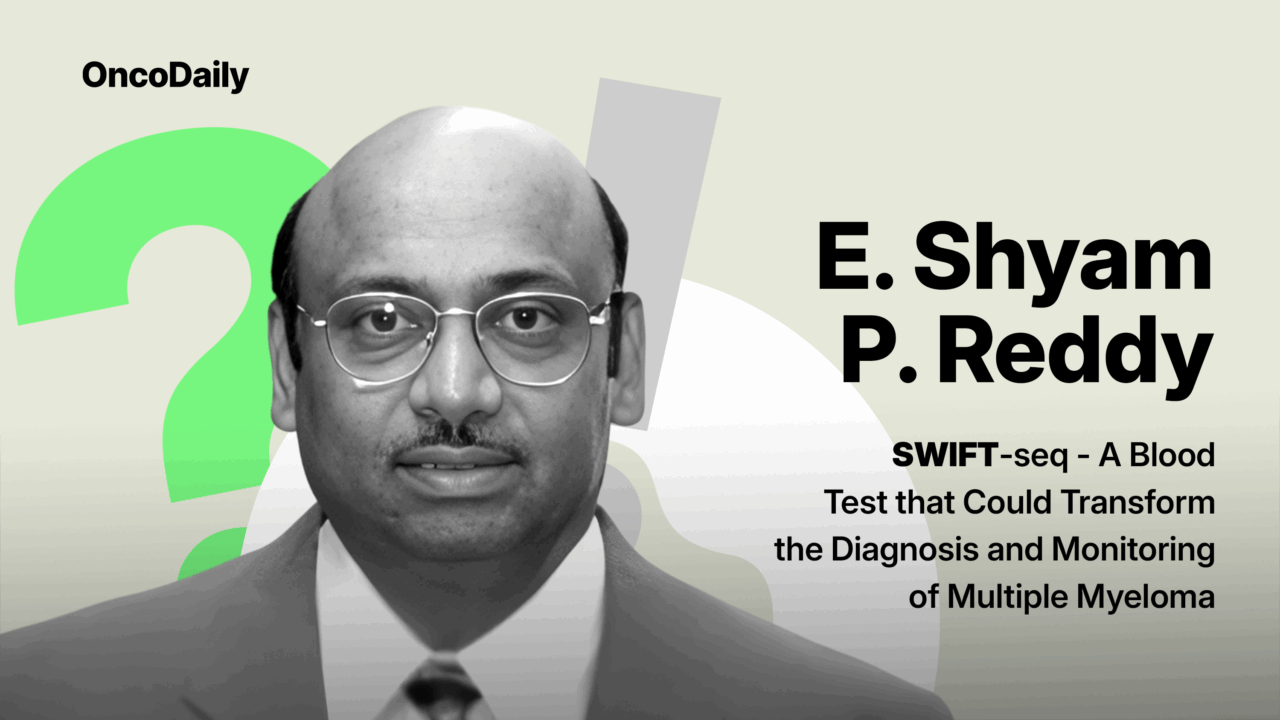E. Shyam P. Reddy, Professor and Director of the Cancer Biology Program at Morehouse School of Medicine, shared a post on LinkedIn about a paper by Elizabeth D. Lightbody et al. published in Nature Cancer:
“Researchers at Dana-Farber Cancer Institute have developed a blood test that could transform the diagnosis and monitoring of multiple myeloma (MM) and its precursor conditions. The new method, known as SWIFT-seq, utilizes single-cell sequencing to profile circulating tumor cells (CTCs) in the blood, offering a non-invasive alternative to traditional bone marrow biopsies.
The study was published in Nature Cancer.
‘A lot of work has gone into the identification of genomic and transcriptomic features that predict worse outcomes in MM, but we are still lacking the tests to measure them in our patients. As a clinician, this is the type of next-generation test that I would want to order for my patients,’ said senior author, Dr. Irene M. Ghobrial.
Multiple myeloma is a challenging bone marrow cancer, often preceded by conditions such as Monoclonal Gammopathy of Undetermined Significance (MGUS) and Smoldering Multiple Myeloma (SMM).
Traditionally, bone marrow biopsies have been used to assess risk and monitor genetic changes in these conditions. However, these biopsies are painful, infrequent, and the accompanying technique, Fluorescence in situ hybridization (FISH), often fails to provide clear results, leading to less effective risk assessment and influencing treatment decisions.
‘It would be amazing if we had a blood-based test that can outperform FISH and that works in the majority of patients—we think SWIFT-seq may just be that test,’ said Dr. Romanos Sklavenitis-Pistofidis, co-first author.
SWIFT-seq offers an innovative alternative by allowing doctors to perform risk assessments and genetic monitoring using a simple blood test, making the process much easier and more reliable. Beyond counting CTCs, SWIFT-seq provides a detailed genetic profile, identifying key genetic changes crucial for understanding the disease.
This method surpasses the accuracy of bone marrow tests like FISH. Additionally, SWIFT-seq evaluates tumor growth rates and identifies important gene patterns that can predict patient outcomes, all from a single blood sample.
‘SWIFT-seq is a powerful option as it can measure the number of CTCs, characterize the genomic alterations of the tumor, estimate the tumor’s proliferative capacity and measure prognostically useful gene signatures in a single test and from a blood sample,’ said Ghobrial.
The study involved 101 patients and healthy donors, demonstrating that SWIFT-seq successfully captured CTCs in 90% of patients with MGUS, SMM, and MM. Notably, it identified CTCs in 95% of patients with SMM and 94% of patients with newly diagnosed MM, the groups most likely to benefit from improved risk stratification and genomic surveillance.
SWIFT-seq’s ability to enumerate CTCs based on the tumor’s molecular barcode, rather than relying on cell surface markers, sets it apart from existing methods like flow cytometry.
SWIFT-seq not only measures multiple clinically relevant features directly from.”
Title: SWIFT-seq enables comprehensive single-cell transcriptomic profiling of circulating tumor cells in multiple myeloma and its precursors
Authors: Elizabeth D. Lightbody, Romanos Sklavenitis-Pistofidis, Ting Wu, Junko Tsuji, Danielle T. Firer, Michael P. Agius, Ankit K. Dutta, Hadley Barr, Sungjae Kim, Jean-Baptiste Alberge, Sarah Nersesian, Tim Coorens, Nicholas J. Haradhvala, Nang Kham Su, Cody J. Boehner, Michelle P. Aranha, Mahshid Rahmat, Yoshinobu Konishi, Laura Hevenor, Katherine Towle, Erica Horowitz, Jacqueline Perry, Maya Davis, Kelly A. Walsh, Christian J. Cea-Curry, Grace Fleming, Michael E. Vinyard, Daniel Heilpern-Mallory, Habib El-Khoury, Annie Cowan, John E. Ready, Catherine R. Marinac, Gad Getz, Irene M. Ghobrial
You can read the Full Article on Nature Cancer.

More posts featuring E. Shyam P. Reddy.


